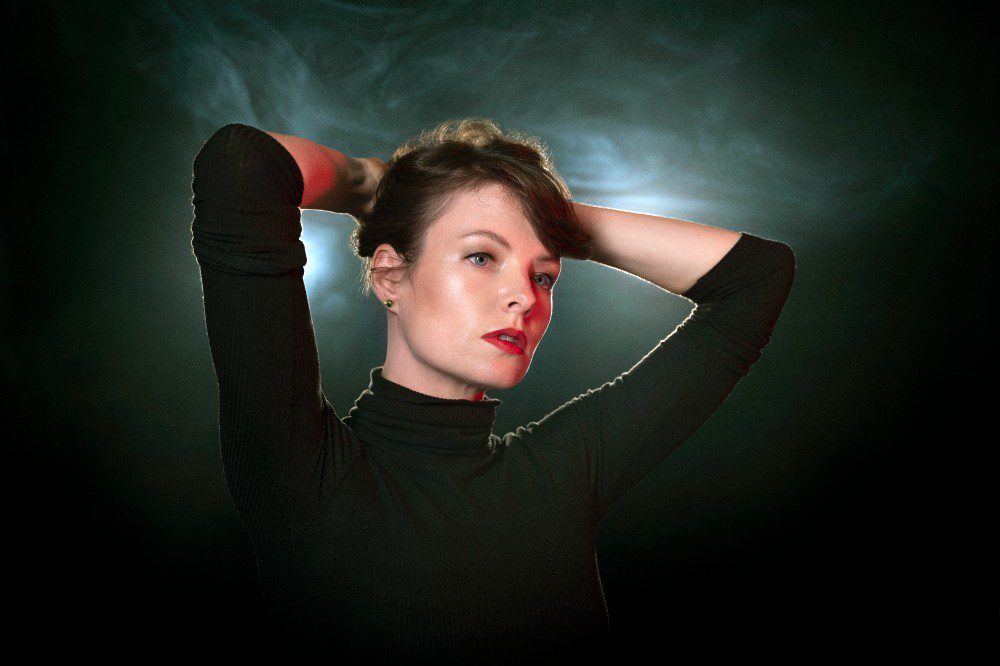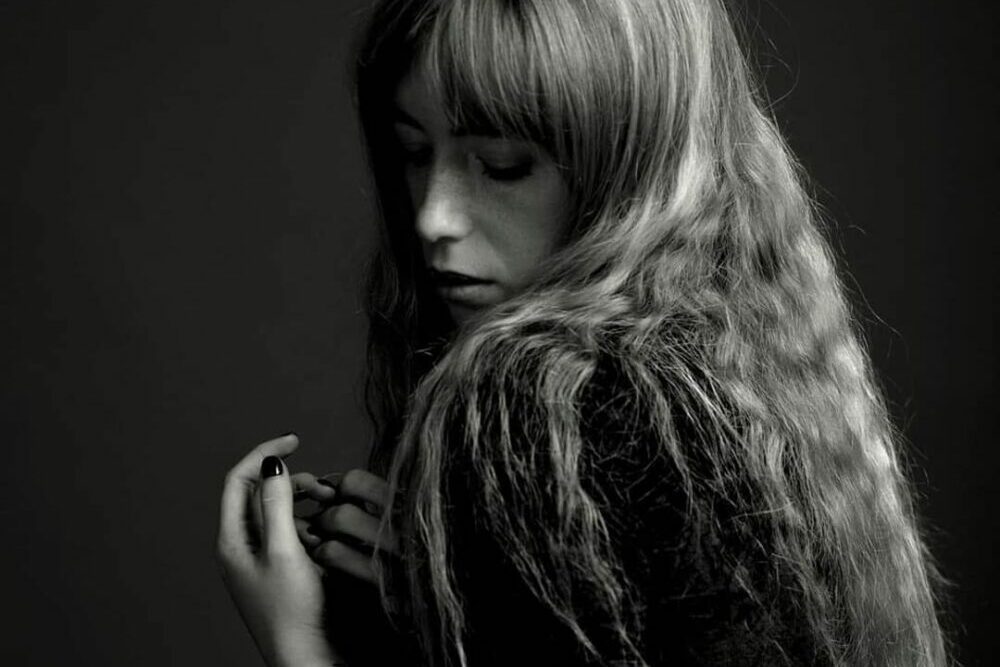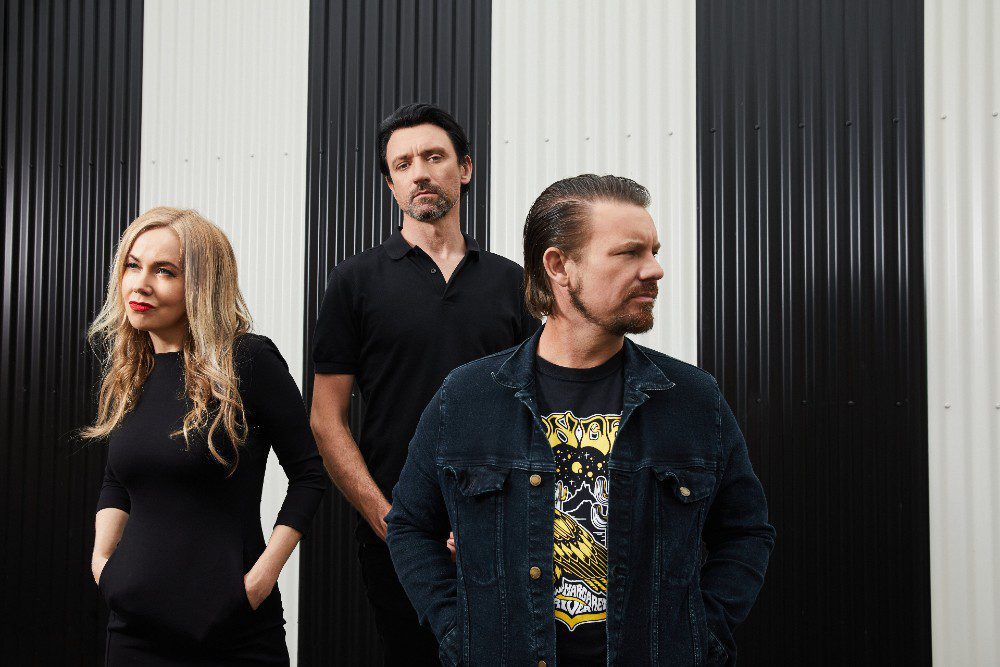

“Justify My Love” was one of Madonna’s most candid, sexy, dark songs. It’s yearning, it’s lustful – all the things women are not expected to demonstrate publicly. On the 20-track compilation of Madonna Covers out via Italians Do It Better, 19 artists from 19 countries contributed their own take on the pop icon’s work. Behind the wonderfully airy, dubby version of “Justify My Love” is the Australian-born, UK-based saxophonist, keyboard player and vocalist Jorja Chalmers.
“We had to be very delicate with the way we did it because it’s such a classic.],” Chalmers says. “My husband [disco producer Ali Renault] and I produced it, and we’ve been talking about it for years. We’d been trying to recreate it in the other stuff we’ve been doing individually. When the label came to us and asked us for our favourite track, it had to be that. The label gave us free reign, complete freedom. It was a bit scary doing the vocals for it, because it’s kind of sensuous. My husband had to leave the room!”
Chalmers usually produces all her own music; “Justify My Love” was the first thing the couple have created together. “It was a real buzz – we’re probably going to write an EP together next,” she hints. “We both have our own studios in the house. You go into a bit of a wormhole, where you can listen to something on loop for an hour because you’re trying to produce and refine it. It works really nicely to have two producers in a relationship because you understand the madness of it.”
Chalmers, currently in France and away from her Margate home, has been on a creative streak. She released her second album, Midnight Train, in May, only two years after her debut Human Again.
The extended time at home, without the solid schedule of on-off touring she is normally committed to, drove Chalmers to set herself a deadline of making an album in four months. It was her therapy, in a way, since her work as a touring musician with Roxy Music had been shelved due to COVID.
How did a Sydney Conservatorium-trained saxophonist, piano-teaching Australian end up on stage with Roxy Music for a decade? In her mid-20s, Chalmers left for London and spent a few years working temp jobs and playing in bands. Then in 2007, three years into her London life, she was performing in new wave band Hotel Motel when Bryan Ferry’s personal assistant saw her and recruited her for corporate gigs. “His PA picked me from obscurity and the next thing you know I’m going to his studio for an audition. It’s such a twist of fate,” she recalls. Proving her mettle, she was invited to tour with Roxy Music in 2011, solidifying her career as a full-time session musician.
In a world where being a full-time artist of any discipline is a rarity, it’s even more special to be performing alongside pioneers of synth pop to audiences old and new. “It’s so difficult to be a successful musician – it’s all about right place, right time,” Chalmers says. “I get to work with some of the most seasoned session musicians and Bryan is an incredible musician. He knows exactly what’s going on with every track. Soundchecks can go on forever because he wants it to sound as amazing as possible. He’s an absolute perfectionist.”
Chalmers herself is perfectionist too, though too humble to admit it. It must have been a relief to offset the pressure of touring with perfectionist musicians by working with Italians Do It Better, a label that gave her the trust, time and space to create on her own terms.
“I wrote a load of demos while I was on the road and spending a lot of time in hotel rooms while touring with Bryan [in 2017]. I was taking a mini-studio with me on the road so on my days off I’d walk around the city, then write for the rest of the day,” she remembers. Upon hearing what she’d been working on, friends recommended she send it to Johnny Jewel at Italians Do It Better. She did, and Jewel responded almost immediately with an invitation to put music out via his label.
“They’re a great label to work with. They don’t interfere with what you’re doing writing-wise. Johnny executive produces so he’ll sprinkle a bit of magic at the end, but there’s no messing with the actual creative process,” she says. “They don’t make you go out and tour, they really work with you on your own terms. Major labels feel like you’ve got to go out on the road, touring all the time, and I do that with Bryan all the time, so touring just to pay a label doesn’t work for me.”
The creative trust put in Chalmers paid dividends. Human Again was vibrant, strange, exploratory and referential all at once. “Human Again was very much a prototype or an idea of the films I’d seen as a child: Blade Runner, Terminator, all the John Carpenter films. [It was also about] getting to know the analog setup, and trying to flex my compositional muscles really,” she says. “I wanted it to be instrumental, though I did add vocal tracks. I wanted it to sound beautiful, majestic, and nostalgic all at the same time.”
For Midnight Train, Chalmers says she wanted to focus on her potential as a songwriter. “It still has the compositional take, but I wanted it to sound like an ethereal journey through various rooms of a house, with a healthy sense of drama,” she explains. Chalmers was aiming for a David Lynch-ian beautiful nightmare – a dark, moody club filled with velvet couches, intoxicating opium smoke, murderous women in blood red lipstick and conniving men in sharp, double-breast suits. Romantic warm machines embrace listeners from the very opening seconds of “Bring Me Down,” before the futuristic synth-pop of “I’ll Be Waiting,” cinematic and anthemic in scope. The disconcertingly disembodied saxophone seems to emerge from a deep, cavernous nothingness, satin-smooth and gothic.
It owes more than a nod to Alison Goldfrapp’s trip-hop, dubby synth-pop. Goldfrapp’s Felt Mountain (2000) was considered too weird and eclectic two decades ago, but it opened doors for the generation of women synth-dance experimentalists to come.
“Funny you say that,” muses Chalmers. “Felt Mountain was the sound that I wanted to always create. Felt Mountain was an odd album for then, and they’ve never created anything like it since. It’s so ethereal, a masterpiece. It was so clever and the whole thing – the production – was amazing on it. Bjork and Fiona Apple were a huge influence too… What I love about that music is that it has depth. I try to create that too – that you play the album more than once, and not in snapshots. I want you to be able to listen to it and hear something different each time.”
Follow Jorja Chalmers on Instagram for ongoing updates.




